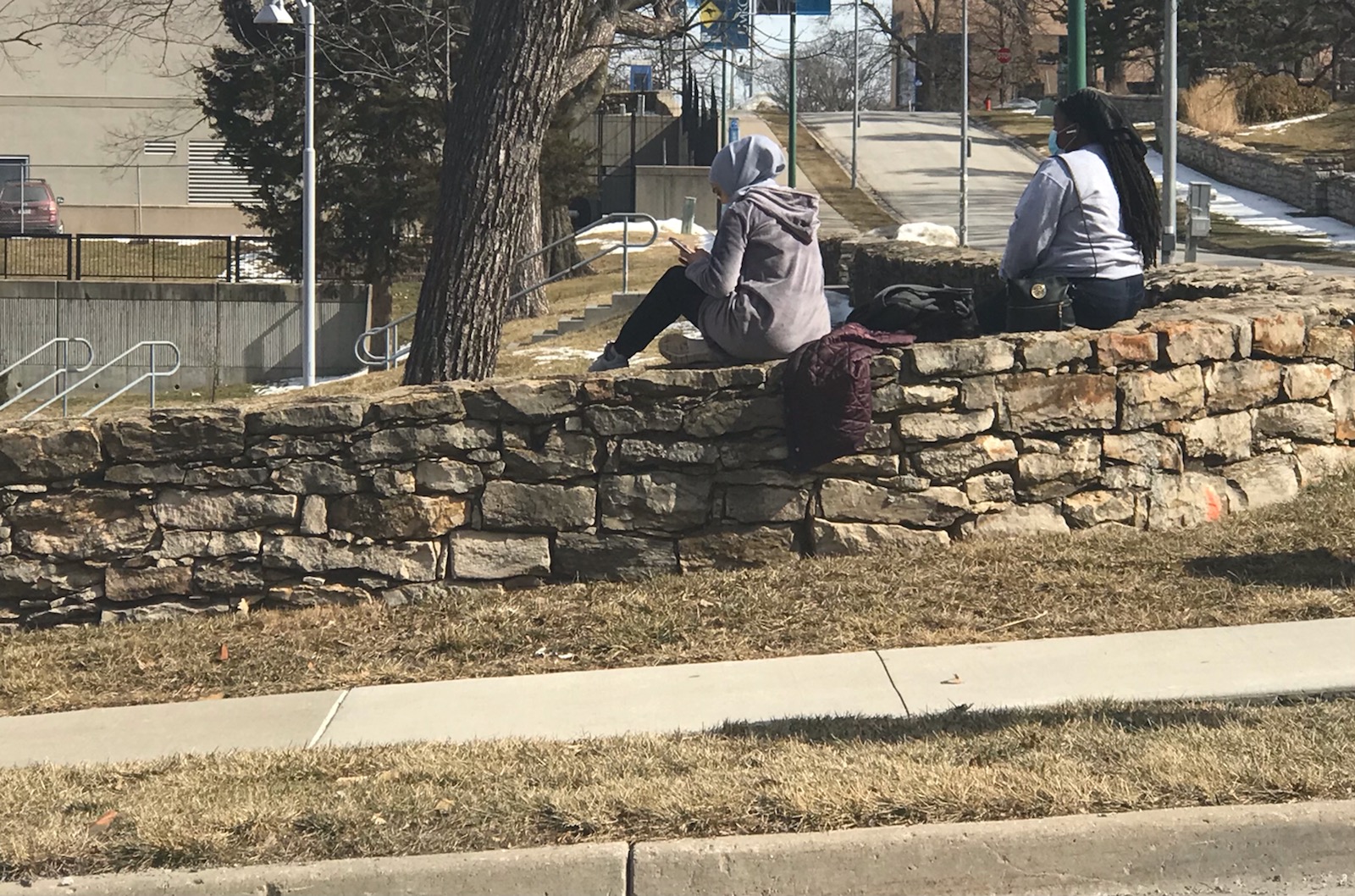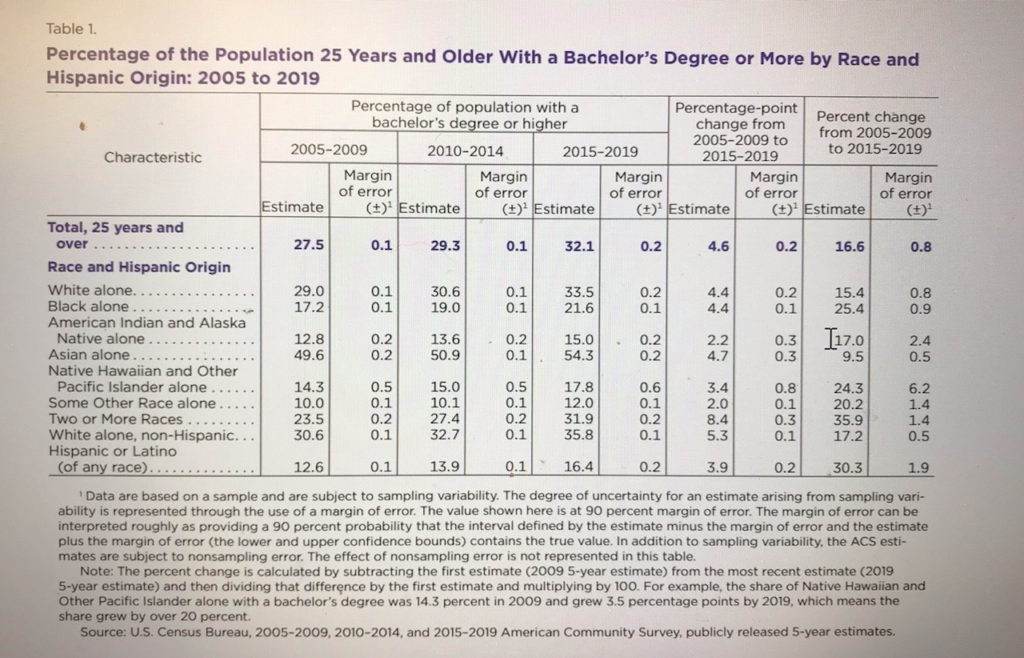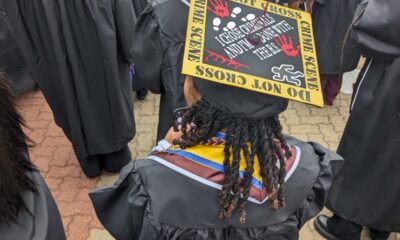Featured
More African Americans Are Graduating From College

The percentage of African Americans graduating from college with a Bachelor’s degree is on the rise, suggesting a growing commitment to education despite the social challenges of the past several years. The statistics are included a report released this week by the Census Bureau.
“I’m proud of my people because of everything we’ve had to go through in this country,” said Henry Lucas, a recent graduate of the University of Arkansas at Pine Bluff. “And, I think it’s good we’re not letting that hold us back.”

According to the report from 2005 to 2009, 17% of African Americans had a Bachelor’s degree. The number rose to 19% from 2010 to 2014. And, by 2019, there was more growth with 21% of Black Americans completing an undergraduate degree.
There was also consistent growth in degree attainment among whites, Hispanics, American Indians, and Asians with more than 50% of the Asian population completing college.
Lucas graduated in May with a Mass Communications degree. The 23-year-old youth minister and his wife, Angel, who will soon graduate with her architecture degree from Prairie View A&M University, are products of HBCUs (Historically Black Colleges and Universities) which are beloved for the generations of Black Americans they have equipped to compete with their white peers in the job market. In its Twitter feed, The United Negro College Fund recently shared an article written by president, Michael Lomax, and published in The Atlantic entitled, “How To Launch The Next Era Of Black Prosperity.”
The article makes the case for continuing to support HBCUs as a vehicle for Black upward mobility despite most white Americans’ lack of knowledge about the institutions’ contributions to Black America and the nation. More Americans are, perhaps, aware of HBCUs after the inauguration of Vice-President Kamala Harris, a graduate of Howard University, and there have been several generous donations from high-profile wealthy philanthropists lately, generating publicity outside the normal circles familiar with the storied legacy of HBCUs. In mid-December Mackenzie Scott, formerly married to billionaire Jeff Bezos, announced that she had donated more than $4.1 billion to 384 organizations among which were 35 colleges described as providing “education for historically marginalized and underserved people.” There were Historically Black Colleges and Universities on the list.
But, amid the good news, college enrollment is reportedly declining among African Americans, and university administrators registered some alarm even before the coronavirus health care crisis. The American Progress published an article, “It’s Time To Worry About College Enrollment Declines Among Black Students” last September which outlined the “large gaps between white young adults with at least an associate degree and their Black or Latinx peers — differences of 19 percentage points and 27 points, respectively.” According to the article, decreases in Black enrollment will diminish the opportunity to close the gap in degree attainment with young white adults. Among the options for reversing the trend is the suggestion for universities to interview high school student leaders and students who recently attended college to “better understand shortcomings in how they recruit, admit, or serve Black students.”
As Lucas closes in on his first year post-graduation, he talks about the reasons more African American students, once enrolled, have stayed the course to graduate.
“I think one of them is technology,” he mused. “We have so much access to social media and laptops and smartphones, and I think people are finding ways to be innovative to make a difference in the world. I think the second thing is people are tired of excuses … I think more people are open to take risks, and people are just wanting to make a change in the world, and they see education as a way to make an impact on the world around us.”

-

 Featured10 months ago
Featured10 months agoCalifornia Is the First State to Create A Public Alert for Missing Black Youth
-

 Featured10 months ago
Featured10 months agoAfrican American Leaders Stay the Course Amid Calls for President Biden To Bow Out of Race
-

 Featured10 months ago
Featured10 months agoThe Debate Fallout Lands on Both Candidates
-

 Featured9 months ago
Featured9 months agoPresident Joe Biden Decides to Withdraw from the Presidential Race
-

 Featured9 months ago
Featured9 months agoIn One of His Final Speeches as President, Biden Says It’s Time for ‘Fresh Voices’
-

 Featured10 months ago
Featured10 months agoPresident Joe Biden Describes Shooting of Donald Trump As ‘Sick’









